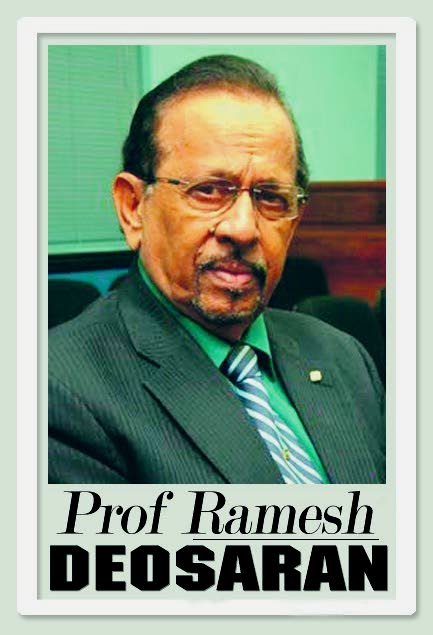Psychological distance

Senior Counsel Anand Ramlogan’s threatening action against the Trinidad and Tobago Police Service (TTPS) and Attorney General Faris Al-Rawi (AG) was an action just waiting to happen. Given divided public opinion, it is really a contest between the limits of police powers, the Quarantine Act and Public Health Ordinance (Regulations) on one hand and the constitutional space provided to citizens, including freedom of movement under the published list of essential services.
Given the grey areas within Ramlogan’s threat and the AG’s response (via Chief Solicitor) is a serious public interest matter, deserving judicial clarification and guidance for government, police and citizens. The crime rate is expected to go down during the covid19 era, but the police, media and government cannot ignore the other public health threat – the continued increase in murder rate (166 compared to 161 last year). And with two persons killed last Monday by police in allegedly self-defence, the Police Complaints Authority also has work to do, virtually.
Last Wednesday, the burdened National Security Minister Stuart Young, softening public criticisms, said police roadblocks are also designed to control crime. However, day before the unstoppable police commissioner, in media release calling his critics “selfish, irresponsible and immature,” insisted the roadblocks are designed as “a powerful tool to save lives in the fight against covid19.” The apparent contradiction was noted by Martin Daly, SC and several learned citizens. Afterwards, in a television interview the commissioner criticised two highly experienced attorneys, Prof Rosemarie Belle Antoine and Mr. Daly and me as being ignorant, armchair critics, etc. Such unsettled matters are more usefully handled by dealing with the issues rather than public officials blasting and insulting citizens who express concerns. This invites unproductive exchanges. The Police Service Commission and PM Dr Rowley should help ensure civility towards the new society recovery. Or should citizens remain silent?
The World Health Organization (WHO) prefers the more measurable term, physical distance, over social distance. This is different from psychological distance, that is the mental disconnection or connection between people or things near or far. As PM Dr Rowley noted, the “stay home” advice, is more moral suasion than a manageable legality. Alongside the list of “essential services,” movement remains difficult to distinguish on the road.
You see, this pandemic throws up troubling challenges for both government and citizens. And fortunately or unfortunately, we must be reminded that we are still a democracy, struggling to separate rumour from fact. PM Dr Rowley, whose leadership has so far been balanced, should insist that ministers and public officials do not unduly widen the psychological distance between government, anti-virus actions and citizens. Synergy’s vigilante tv host, Saieed Ali, repeated calls on Health Minister Deyalsingh for the “48 hours report” promised last week on the Sangre Grande “step-down” facility. It’s with the AG, says Deyalsingh. Columnist Andy Johnson saw this as an “inconvenient truth.”
UWI law Prof Belle Antoine, described the sporadic roadblocks as public nuisance and quite arbitrary. Many citizens agreed it was over-reach. MSJ Leader David Abdulah criticised police roadblocks as being a counter-productive nuisance and complained about unequal treatment in law enforcement. Is all this over-reaction? Police action, professor advises, should be within the law, until it changes. It helps avoid litigation and possibly, taxpayers’ expenditures.
Psychological distance among our various races also expands during racial controversies. That is, even while in close physical contact, they maintain psychological distance. This is different from social distance and in fact quite crucial to classrooms, workplaces, marriage, etc. It is a measure of how people are mentally connected or disconnected to what is required. You may shake hands but you may not like her. The boy sits in class but he thinks about somewhere else. There is psychological distance between Trinidad and Tobago.
In the biography of former Israeli prime minister, David Ben-Gurion, a familiar example is described: “His politics took precedence over everything. He treated his wife, Paula, shabbily; so distant was he from his family that he repeatedly asked his son how old he was.” There is no art to tell the mind’s construction on the face. Desires for love, racial unity, worker cooperation, police-citizen relations, etc are all threatened by psychological distance.


Comments
"Psychological distance"